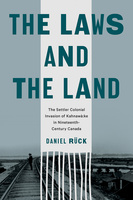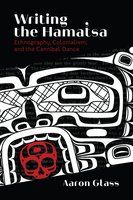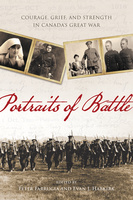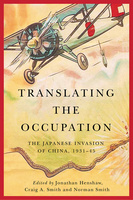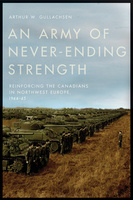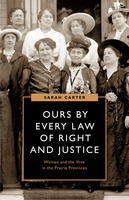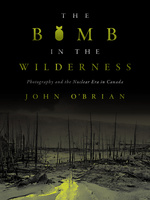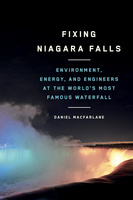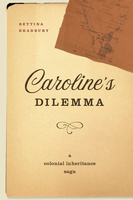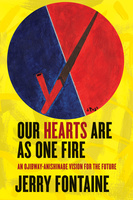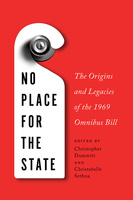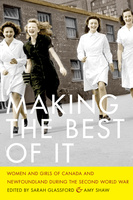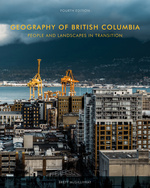The Laws and the Land
The Settler Colonial Invasion of Kahnawà:ke in Nineteenth-Century Canada
The Laws and the Land, an original and impassioned account of the history of the relationship between Canada and Kahnawà:ke, reveals the clash of settler and Indigenous legal traditions and the imposition of settler colonial law on Indigenous peoples and land.
Writing the Hamat'sa
Ethnography, Colonialism, and the Cannibal Dance
Writing the Hamat̓sa critically surveys more than two centuries worth of published, archival, and oral sources to trace the attempted prohibition, intercultural mediation, and ultimate survival of one of Canada’s most iconic Indigenous ceremonies.
The Rowell-Sirois Commission and the Remaking of Canadian Federalism
The Rowell-Sirois Commission and the Remaking of Canadian Federalism reveals the commission’s impact on the high politics of federal-provincial relations and its legacy for Canadian federalism today.
Demanding Equality
One Hundred Years of Canadian Feminism
In a wide-ranging survey of Canadian feminism from the 1880s to the 1980s, Demanding Equality reveals a continuous, vibrant, and often contentious search for equality, autonomy, and dignity.
Able to Lead
Disablement, Radicalism, and the Political Life of E.T. Kingsley
Able to Lead tells the forgotten story of the life of double amputee E.T. Kingsley, a pioneering politician, and labour and justice activist.
The Government of Natural Resources
Science, Territory, and State Power in Quebec, 1867–1939
The Government of Natural Resources is a revealing look at how science can extend state power through territorial and environmental transformations.
Portraits of Battle
Courage, Grief, and Strength in Canada's Great War
Portraits of Battle combines biography and history to offer a nuanced perspective on the complex legacy of the Great War, as told through the stories of those who served in the Canadian Expeditionary Force.
Frontiers of Feminism
Movements and Influences in Québec and Italy, 1960–80
Frontiers of Feminism shines new light on the recent history of feminist movements, using the examples of Italy and Québec to bring an international perspective to major themes, strategies, and modes of organizing.
Translating the Occupation
The Japanese Invasion of China, 1931–45
Featuring a collection of translated texts written by writers who lived through the occupation, Translating the Occupation challenges and deepens our understanding of the tensions and transformations that Japanese invasion wrought on Chinese society.
An Army of Never-Ending Strength
Reinforcing the Canadians in Northwest Europe, 1944–45
This detailed analysis of how the Canadian Army sustained troop and equipment levels in Northwest Europe during 1944–45 demonstrates the vital importance of constant combat strength.
Uplift
Visual Culture at the Banff School of Fine Arts
The first major historical study of the Banff School of Fine Arts, Uplift reveals the foundational role of the school in shaping what is today the globally renowned Banff Centre for Arts and Creativity.
Queen of the Maple Leaf
Beauty Contests and Settler Femininity
Queen of the Maple Leaf reveals the role of beauty pageants in entrenching settler femininity and white heteropatriarchy at the heart of twentieth-century Canada.
Ours by Every Law of Right and Justice
Women and the Vote in the Prairie Provinces
This long-overdue account of the suffrage campaigns in the first region to grant women the vote in Canada shatters cherished myths about how the West was won.
Captain Cook Rediscovered
Voyaging to the Icy Latitudes
This first modern study to focus on James Cook’s polar adventures, Captain Cook Rediscovered introduces an entirely new explorer who is more at home along the edge of the polar ice packs than the Pacific’s sandy beaches.
A Bounded Land
Reflections on Settler Colonialism in Canada
In this beautifully crafted and written volume, Canada’s preeminent historical geographer traces how Canada’s geographical limitations have shaped the nature of its settler societies – from first contacts, to dispossession, to our current age of reconciliation.
The Nuclear North
Histories of Canada in the Atomic Age
The Nuclear North investigates Canada’s place in the grey area between nuclear and non-nuclear to explore how this has shaped Canadians’ understanding of their country and its policies.
The Bomb in the Wilderness
Photography and the Nuclear Era in Canada
The Bomb in the Wilderness is an acutely perceptive analysis of Canada’s nuclear footprint through the medium of photography, revealing how we have represented, interpreted, and remembered nuclear activities since 1945.
Fixing Niagara Falls
Environment, Energy, and Engineers at the World’s Most Famous Waterfall
Long considered a natural wonder, the world’s most famous waterfall is anything but. Fixing Niagara Falls reveals the engineering and politics behind the transformation of Niagara Falls.
Caroline's Dilemma
A Colonial Inheritance Saga
This extraordinary book skillfully blends diverse historical evidence to tell the harrowing story of Caroline Kearney and her struggles against the paternalistic inheritance laws of the nineteenth century colonial world.
Our Hearts Are as One Fire
An Ojibway-Anishinabe Vision for the Future
Reframing Manitou Aki (Creator's Land) history from the perspective of the Ojibway-Anishinabe, Our Hearts Are as One Fire shares a vision for the leaders of today and tomorrow.
Canada 1919
A Nation Shaped by War
With compelling insight, Canada 1919 exposes the ways in which the First World War shaped and changed Canada – and the ways it did not.
A Great Revolutionary Wave
Women and the Vote in British Columbia
The first book on the woman’s suffrage movement in British Columbia, A Great Revolutionary Wave traces the history of the fight for the vote from the 1870s to the 1940s against a backdrop of social reform, international social movements, labour politics, and settler colonialism.
He Thinks He's Down
White Appropriations of Black Masculinities in the Civil Rights Era
Offering fresh insights and raising important questions, this historical exploration of appropriation traces the ways in which gender and race were negotiated through the popular culture of the Civil Rights Era.
Contact!Unload
Military Veterans, Trauma, and Research-Based Theatre
This important book explores an arts-based therapeutic approach to mental health care, bringing to light the journeys of contemporary military veterans as they adjust to civilian life post-deployment.
War Junk
Munitions Disposal and Postwar Reconstruction in Canada
War Junk recounts the surprising history of leftover military munitions and supplies, revealing their complex political, economic, social, and environmental legacies in postwar Canada.
No Place for the State
The Origins and Legacies of the 1969 Omnibus Bill
No Place for the State is an incisive study that offers complex and often contrasting perspectives on the Trudeau government’s 1969 Omnibus Bill and its impact on sexual and moral politics in Canada.
Making the Best of It
Women and Girls of Canada and Newfoundland during the Second World War
Making the Best of It examines the ways in which gender and other identities intersected to shape the experiences of female Canadians and Newfoundlanders during the Second World War.
Geography of British Columbia, Fourth Edition
People and Landscapes in Transition
This extensively revised edition of Geography of British Columbia teaches students how to think like geographers as it takes them on a journey from the origins of the region’s diverse and unique landscapes to its more recent history as a province being reshaped by the forces of globalization.
Canada and Ireland
A Political and Diplomatic History
This intriguing study sheds light on Canada’s relationship with Ireland, revealing the origins, trials, and successes of the intimate and at times turbulent connection between the two countries.
Challenge the Strong Wind
Canada and East Timor, 1975–99
Challenge the Strong Wind recounts the story of Canadian policy toward East Timor from the 1975 invasion to the 1999 vote for independence, demonstrating that historical accounts need to include both government and non-governmental perspectives.

